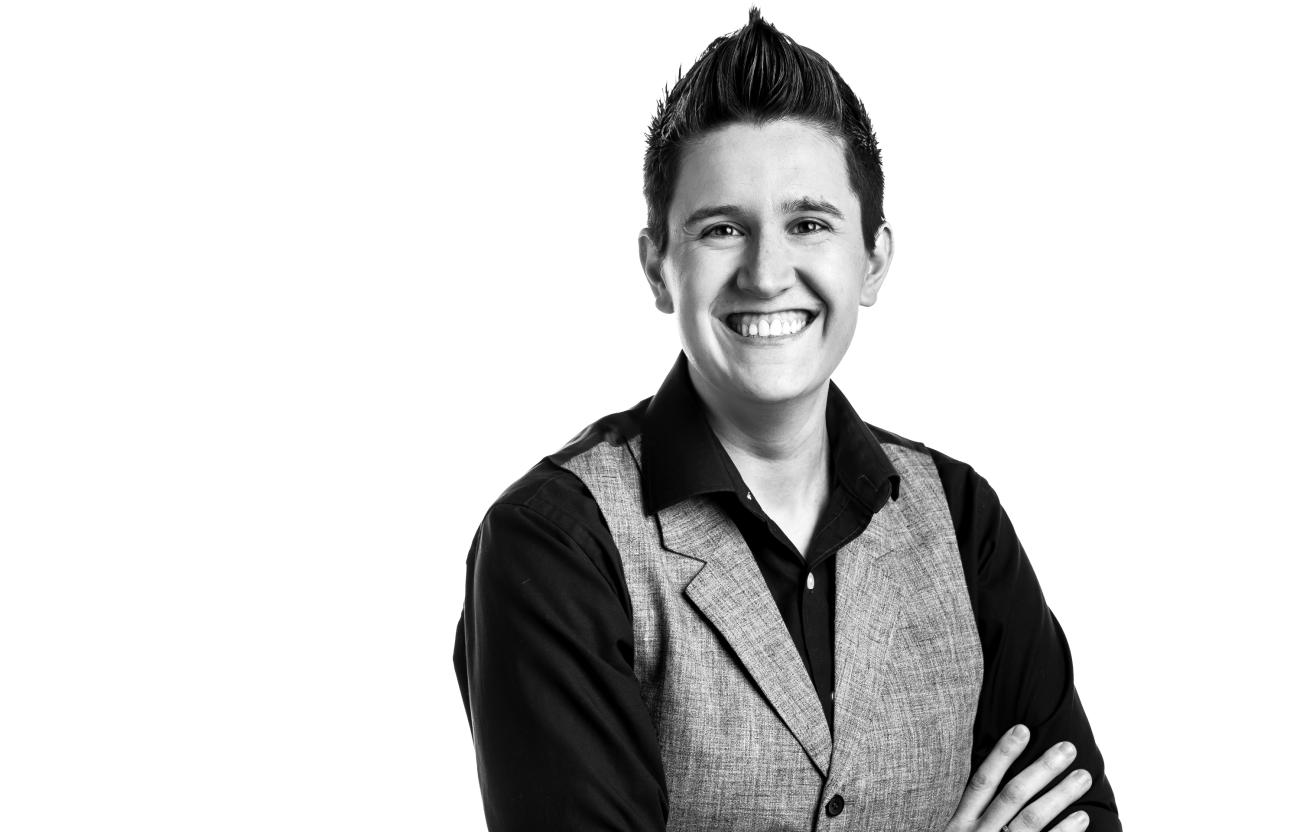When Kristen Jakubowski suffered a season-ending concussion midway through her third year on the ice hockey team at Rensselaer Polytechnic Institute, she didn’t anticipate that it would take the rest of her time in college to recover.
“The journey of injury and recovery required a lot of mental stamina because no one knew when I was going to get better, and it took longer than anyone expected,” Jakubowski said. “But that experience was also the entry into my research in rehabilitation and helping people with mobility impairments.”
Ultimately, that concussion led Jakubowski to shift her degree in biomedical engineering from a sports focus to a focus in rehabilitation, eventually earning a master’s and then a Ph.D. in the field. This fall, she’s joining the Wallace H. Coulter Department of Biomedical Engineering at Georgia Tech and Emory University as an American Society of Engineering Education (ASEE) eFellows Postdoctoral Fellow.
An athlete for much of her life, Jakubowski’s initial interest in research originated from a desire to understand how people move — for example, she wondered, “Why is Michael Phelps so good at swimming and I’m not?” She graduated from Rensselaer with her bachelor’s in 2013 and her master’s in 2014, and in 2017 she enrolled as a Ph.D. candidate at Northwestern University, where she focused on how the calf and Achilles tendon control ankle mobility. At Northwestern, Jakubowski also narrowed in on her research goal: helping people with impaired mobility using quantitative, engineering-based methods.
Jakubowski knew she wanted to stay in academia when she finished her Ph.D. She’ll start down that path in Coulter BME with the ASEE fellowship, which provides two years of funding, mentorship, and more.
“The eFellows program can cover any kind of engineering,” said Jakubowski, whose Ph.D. fellowship required her to focus on aging. “It broadens the scope of what I can do. The reviewers of my application weren’t necessarily biomedical engineers, so it was cool that I could convey to them the need for my project and the mass appeal it has.”
Jakubowski will work on assistive technology and robotics to aid impaired mobility with Lena Ting, McCamish Foundation Distinguished Chair in the Coulter Department, Gregory Sawicki, associate professor in the George W. Woodruff School of Mechanical Engineering at Tech, and Aaron Young, assistant professor in the Woodruff School. Specifically, Jakubowski is developing algorithms for powered exoskeletons to improve a person’s balance.
“Think Iron Man, but smaller,” Jakubowski said. “It’s not a full suit, but it is external to the wearer and provides powered assistance to them.”
Jakubowski will be splitting her time between her advisors’ labs at Tech and Emory. “The resources for assistive technology here are unparalleled,” she said. “I’ve already felt so supported by everyone around me. There’s space here to do some really cool, innovative research.”
Although Jakubowski doesn’t play hockey competitively anymore, she said her experience as a student-athlete shaped both the research she pursues and the mentality with which she approaches it. Between juggling school and athletics, she learned to manage her time, take breaks when needed, and persevere through losses and injuries.
“Fellowships like the eFellows program don’t have very high acceptance rates,” she said. “You don’t get every grant or award you apply for. But I had learned that failing at something doesn’t make me a failure, and I had the perseverance to keep trying.”
Latest BME News
Jo honored for his impact on science and mentorship
The department rises to the top in biomedical engineering programs for undergraduate education.
Commercialization program in Coulter BME announces project teams who will receive support to get their research to market.
Courses in the Wallace H. Coulter Department of Biomedical Engineering are being reformatted to incorporate AI and machine learning so students are prepared for a data-driven biotech sector.
Influenced by her mother's journey in engineering, Sriya Surapaneni hopes to inspire other young women in the field.
Coulter BME Professor Earns Tenure, Eyes Future of Innovation in Health and Medicine
The grant will fund the development of cutting-edge technology that could detect colorectal cancer through a simple breath test
The surgical support device landed Coulter BME its 4th consecutive win for the College of Engineering competition.








